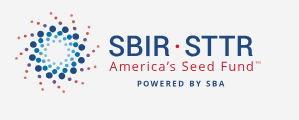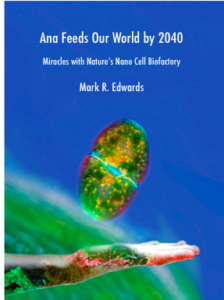The U.S. Department of Energy’s Bioenergy Technologies Office (DOE/BETO) selected eight algae projects for nearly $17 million in funding among 36 Bioenergy R&D awards issued today. The awards are the latest installment of funding under BETO’s Advanced Algal Systems program, which was established in 2016 in response to ABO’s successful effort to secure strong, sustained funding for algae research in the annual federal budget process. Congratulations to ABO organizational members AzCATI, Global Algae Innovations, LanzaTech and MicroBio Engineering, as well as our ABO individual member awardees. Thank you DOE/BETO for your continued investment.
Funding Opportunity: Algae Production Systems SBIR
 The USDA’s Small Business Innovation Research (SBIR) program, a competitive program that encourages domestic small businesses to engage in Federal Research/Research and Development (R/R&D), has opened a new opportunity that could support algae production systems.
The USDA’s Small Business Innovation Research (SBIR) program, a competitive program that encourages domestic small businesses to engage in Federal Research/Research and Development (R/R&D), has opened a new opportunity that could support algae production systems.
The SBIR Aquaculture topic area funds research projects that can improve the production efficiency and competitiveness of private sector, commercial aquaculture in the United States. Under the topic area, algae is listed as a qualifying technology.
Novel or innovative approaches to improve the efficiency of algal production and feedstock logistics including: identification of new (or improved) species with improved nutritional profile for use in aquaculture feed, human food, or food supplements; development of improved bioreactor technology; and development of new methods for harvesting algal biomass.
Put Algae in the Farm Bill!
This year Congress is debating a new Farm Bill, legislation that for years has supported agricultural industries, rural communities, and the American foods supply.
Algae are fast becoming a significant component in food and health products, and it is time that this new crop was afforded the support by the U.S. Department of Agriculture that other crops have seen for decades.
Thanks to outreach by ABO and its members, a number of provisions are being considered in the new Farm Bill that could dramatically accelerate algae farming in the U.S., bringing economic benefits to rural areas and sustainable solutions to the world:
1. Algae Research Initiative – Included in section 7208 of the House-passed bill, would establish for the first time an Algae Agriculture R&D program at USDA to complement existing work at the Department of Energy. A Senate floor amendment (SA 3205) further strengthening the House provision was introduced by Senators Cornyn and Udall but not included in the final Senate bill. Urge your representatives in Congress to include Senate Amendment 3205 in the final Farm Bill package.
2. Crop Assistance for Algae – The absence of an established crop insurance program for algae production may be the single greatest barrier to the establishment of new algae farms and the expansion of existing farms. Section 9 of H.R. 5373, the Algae Agriculture Act, includes two key, no-cost provisions that would begin to pave the way for algae crop insurance. Section 9 of H.R. 5373 should be included in the final Farm Bill package.
3. Elimination of Algae BCAP Exclusion – Algae is excluded from Collection, Harvest, Storage and Transportation (CHST) payments under the Title IX Biomass Crop Assistance Program (BCAP). This exclusion is eliminated under section 9110 of the Senate-passed bill. Section 9110 of the Senate-passed bill should be included in the conference report.
4. Recycled Carbon Provisions – The Senate-passed bill includes important provisions in support of algae and other Carbon Capture and Use (CCU) applications in rural America. Several additional definitional changes outlined in section 8 of H.R. 5373, the Algae Agriculture Act, and the Bennet-Whitehouse Senate floor amendment SA 3342 are also needed to ensure eligibility of recycled-carbon products. SA 3342 and Sections 7409, 9103, and 9113 of the Senate-passed bill should be included in the conference report.
Help us get algae into the Farm Bill! Contact your representatives today and tell them to support these four key asks.
These provisions are being discussed now, so be sure to make your voice heard soon!
Find your House representative’s phone numbers here.
Find your Senators’ phone numbers here.
Find their Twitter handle here.
Find their Facebook page here.
Ana Feeds our World by 2040, Making the Case for Algae in Food
 ABO members are invited to get their free copy of a new book that makes the case for algae as a solution to intractable problems in the global food supply chain.
ABO members are invited to get their free copy of a new book that makes the case for algae as a solution to intractable problems in the global food supply chain.
This will be an invaluable resource for business leaders that need to reach new audiences that are often unfamiliar with the role algae can play in countless markets.
In Ana Feeds our World by 2040 Dr. Mark Edwards, a professor at Arizona State University and expert on communicating the potential of algae, describes the adoption and diffusion of sustainable, healthy and affordable algae-based food for plants, animals and people.
The book shares how the lowest plant on the food chain creates a food renaissance with foods that are superior in nutrients, vitamins, minerals and bioactive compounds. These foods are also substantially more sustainable, productive and affordable than industrial foods.
Ana describes novel solutions for critical issues facing modern agriculture; protein shortages, cropland allocations, water supplies, energy, fertilizer, pesticides, pollution and climate chaos.
Dr. Edwards will be publishing excerpts of his new book on his blog, but ABO members can download their own, full-color PDF copy by logging into their ABO account at www.algaebiomass.org and navigating to the Member Resources page.
In Memoriam: Dr. Mark Hildebrand
ABO was saddened this month by the passing of marine biologist Dr. Mark Hildebrand, the leader of one of the United States’ top centers for algal biofuel research. He was 59.
Hildebrand was director of the Marine Biology Research Division at Scripps Institution of Oceanography at UC San Diego, and was also a founding member of the California Center for Algae Biotechnology.
Early in his career Hildebrand became a pioneer of advanced molecular biology approaches related to the study of diatoms, tiny algae known for their silica-based cell walls. His research opened new avenues for the study of diatoms as producers of valuable lipids, the same oils that can be used to make biofuels and a range of other useful products.
He was a fixture at national meetings of research leaders, and a mentor to countless students devoting their own studies to understanding algal biology and its potential to address global challenges.
In 2014, the U.S. Department of Energy’s Bioenergy Technology Office ranked his program as the top in the country for algal biofuels research.
He will be missed by the entire ABO membership.
Scripps has posted more information about Mark’s incredible contributions here.

